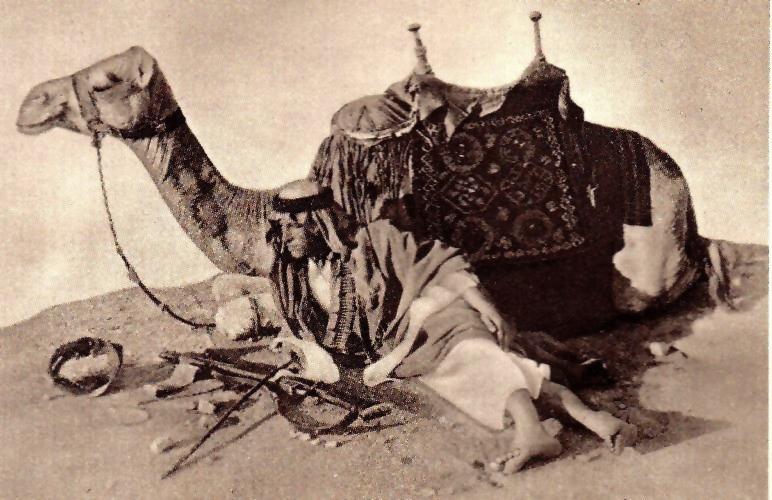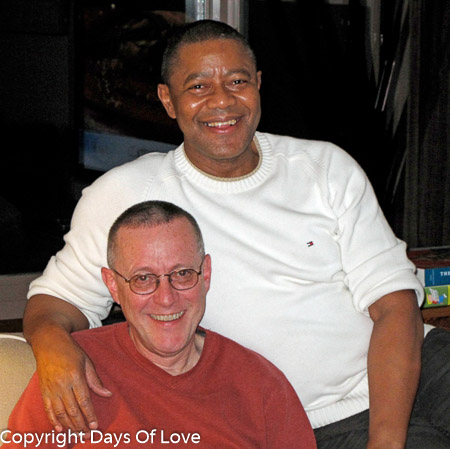|
Gay Wisdom for Daily Living brought to you by White Crane Institute ͏ ͏ ͏ ͏ ͏ ͏ ͏ ͏ ͏ ͏ ͏ ͏ ͏ ͏ ͏ ͏ ͏ ͏ ͏ ͏ ͏ ͏ ͏ ͏ ͏ ͏ ͏ ͏ ͏ ͏ ͏ ͏ ͏ ͏ ͏ ͏ ͏ ͏ ͏ ͏ ͏ ͏ ͏ ͏ ͏ ͏ ͏ ͏ ͏ ͏ ͏ ͏ ͏ ͏ ͏ ͏ ͏ ͏ ͏ ͏ ͏ ͏ ͏ ͏ ͏ ͏ ͏ ͏ ͏ ͏ ͏ ͏ ͏ ͏ ͏ ͏ ͏ ͏ ͏ ͏ ͏ ͏ ͏ ͏ ͏ ͏ ͏ ͏ ͏ ͏ ͏ ͏ ͏ ͏ ͏ ͏ ͏ ͏ ͏ ͏ ͏ ͏ ͏ ͏ ͏ ͏ ͏ ͏ ͏ ͏ ͏ ͏ ͏ ͏ ͏ ͏ ͏ ͏ ͏ ͏ ͏ ͏ ͏ ͏ ͏ ͏ ͏ ͏ ͏ ͏ ͏ ͏ ͏
|
|
||||
| This Day in Gay History | ||||
August 15Born 1888 - T.E. LAWRENCE, English writer and soldier was born (d. 1935) As was common for his class and generation, Lawrence did not discuss his sexual orientation or sexual practices, and his actual orientation and experiences are debated. Writers working to elucidate the history of same-sex erotic relationships identify a strong homoerotic element in Lawrence's life, while scholars, including his official biographer, have been accused of "attempt[ing] to defend Lawrence against 'charges' of homosexuality." There is one clearly homoerotic passage in the Introduction, Chapter 2, of Seven Pillars of Wisdom: "quivering together in the yielding sand, with intimate hot limbs in supreme embrace." The book is dedicated to "S.A." with a poem that begins: "I loved you, so I drew these tides of men into my hands and wrote my will across the sky in stars To gain you Freedom, the seven-pillared worthy house, that your eyes might be shining for me When I came." It is unclear whether "S.A." identifies a man, a woman, a nation, or some combination of the above. Lawrence himself maintained that "S.A." was a composite character. On the subject of the war, Lawrence once said: "I liked a particular Arab, and thought that freedom for the race would be an acceptable present." If "S.A." does refer to a particular person, a likely possibility is Selim Ahmed, nicknamed "Dahoum" ("Dark One"), a 14-year-old Arab with whom Lawrence is known to have been close. The two met while working at a pre-war archaeological dig at Carchemish. Lawrence allowed the boy to move in with him, carved a nude sculpture of him which he placed on the roof of the house in Greco-Roman style (Lawrence being a scholar of classical literature), and brought Ahmed on holiday to England. Died 2017 - MARK MERLIS, who died on this date, was an American writer and health policy analyst. Born in Framingham, Massachusetts and raised in Baltimore, Maryland, Merlis attended Wesleyan University and Brown University. He subsequently took a job with the Maryland Department of Health to support himself while writing. In 1987, he took a job with the Congressional Research Service at the Library of Congress as a social legislation specialist, and was involved in the creation of the Ryan White Care Act. Beginning in the 1990s, Merlis published a series of novels. His first novel, American Studies, won the Ferro-Grumley Award for LGBT Literature and the Los Angeles Times Book Prize Art Seidenbaum Award for First Fiction in 1995, and his second, An Arrow’s Flight, won the 1999 Lambda Literary Award for Gay Fiction. Merlis lived in Philadelphia, with his husband Bob Ashe, and continued to work as an independent health policy consultant up until his disease made it impossible. He died from complications of ALS. | ||||
|
|8|O|8|O|8|O|8|O|8|O|8|O|8|O|8| Gay Wisdom for Daily Living from White Crane Institute "With the increasing commodification of gay news, views, and culture by powerful corporate interests, having a strong independent voice in our community is all the more important. White Crane is one of the last brave standouts in this bland new world... a triumph over the looming mediocrity of the mainstream Gay world." - Mark Thompson Exploring Gay Wisdom & Culture since 1989! |8|O|8|O|8|O|8|O|8|O|8|O|8|O|8| | ||||
|
|||||
|



